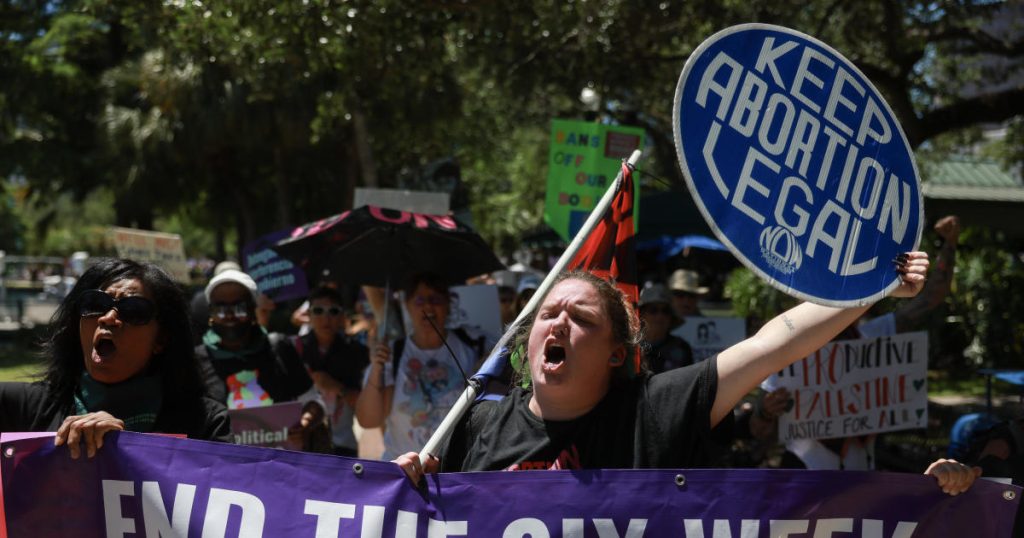Florida health regulators issued a new rule clarifying exceptions to the state’s six-week abortion ban, allowing treatments for certain medical conditions that pose a health risk to pregnant women and fetuses. The rule specifies that treatments for ectopic pregnancy, trophoblastic tumors, and premature rupture of membranes are not considered abortions. The state regulators emphasize the need to address immediate dangers to the health and welfare of women and unborn children in medical emergencies, dismissing claims of disinformation surrounding the law.
The six-week ban in Florida, signed into law by Gov. Ron DeSantis, went into effect after the state Supreme Court upheld a separate measure prohibiting abortions after 15 weeks of pregnancy. The ban includes exceptions for cases of rape, incest, human trafficking, and to save the life of the mother or prevent substantial physical impairment. However, abortion rights supporters argue that the law effectively acts as a near-total ban on abortion, as many women do not realize they are pregnant until after six weeks of gestation.
After the U.S. Supreme Court overturned Roe v. Wade, 14 states have implemented near-total abortion bans with limited exceptions, while seven states ban abortion in the first 18 weeks of pregnancy. Physicians in states with stringent abortion restrictions have faced challenges in interpreting exceptions to these laws. The Supreme Court recently considered a case involving Idaho’s near-total abortion ban conflicting with federal laws requiring hospitals to provide stabilizing care to patients in medical emergencies, with the Biden administration arguing that stabilizing treatment may include abortion care.
The Florida Agency for Health Care Administration initiated the rulemaking to safeguard pregnant women and unborn babies during medical emergencies, insisting that the rule is necessary to ensure their health, safety, and welfare. Despite accusations of a dishonest scare campaign by media, advocacy groups, and the Biden administration, the agency clarifies that treatments for certain medical conditions are not considered abortions under the law. The rule provides clarity on exceptions to the six-week abortion ban in Florida to address immediate health risks.
Melissa Quinn, a politics reporter for CBSNews.com, covers U.S. politics with a focus on the Supreme Court and federal courts. She highlights the impact of Florida’s new abortion restrictions and the challenges faced by physicians in states with stringent abortion laws. The shifts in abortion policy following the overturning of Roe v. Wade have led to increased scrutiny, legal battles, and concerns regarding access to abortion care for women across the country.


